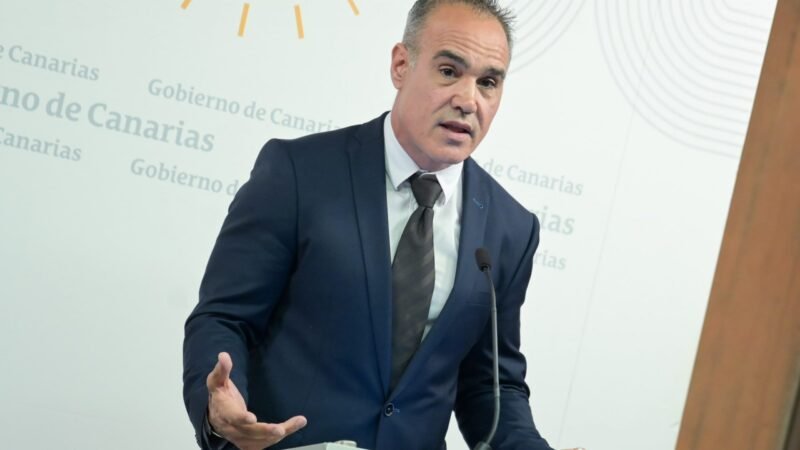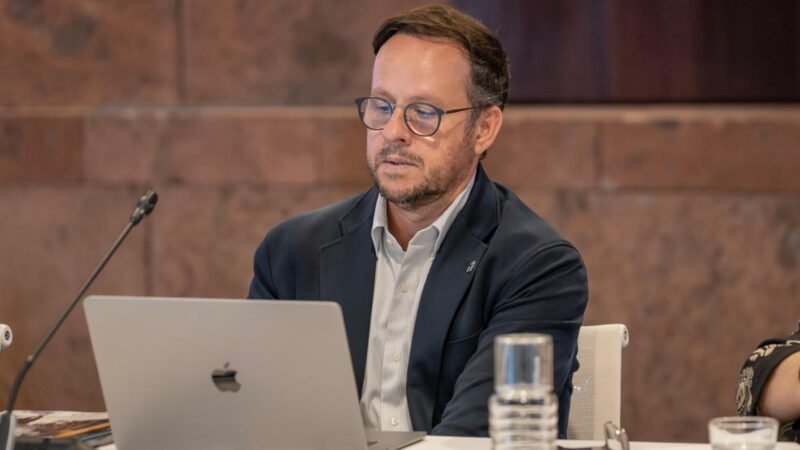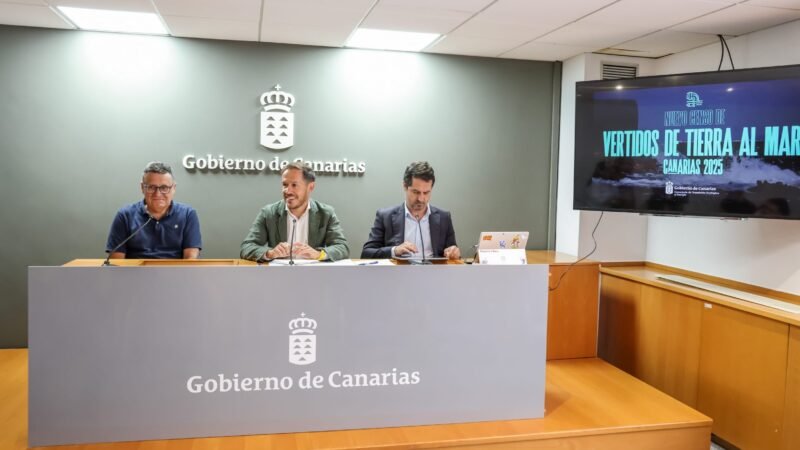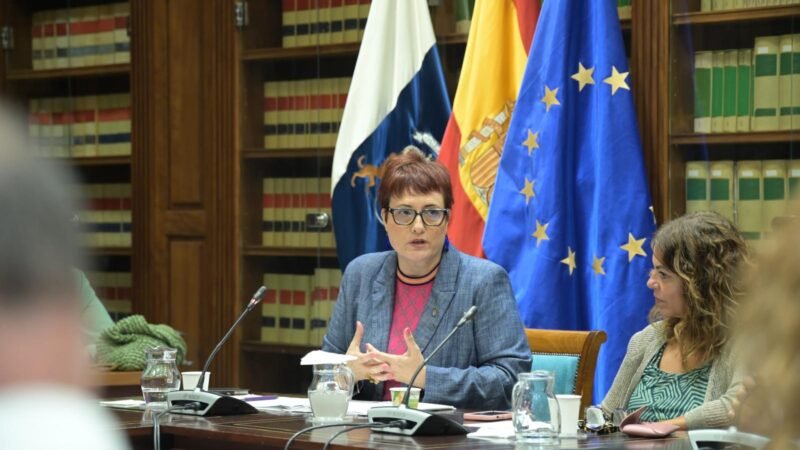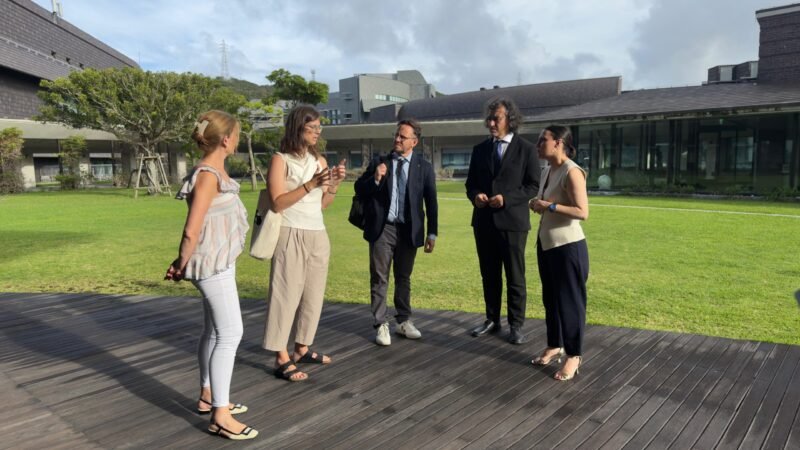Portal gubernamental de las Islas Canarias: Negociaciones en la Unión Europea para mantener directiva medioambiental
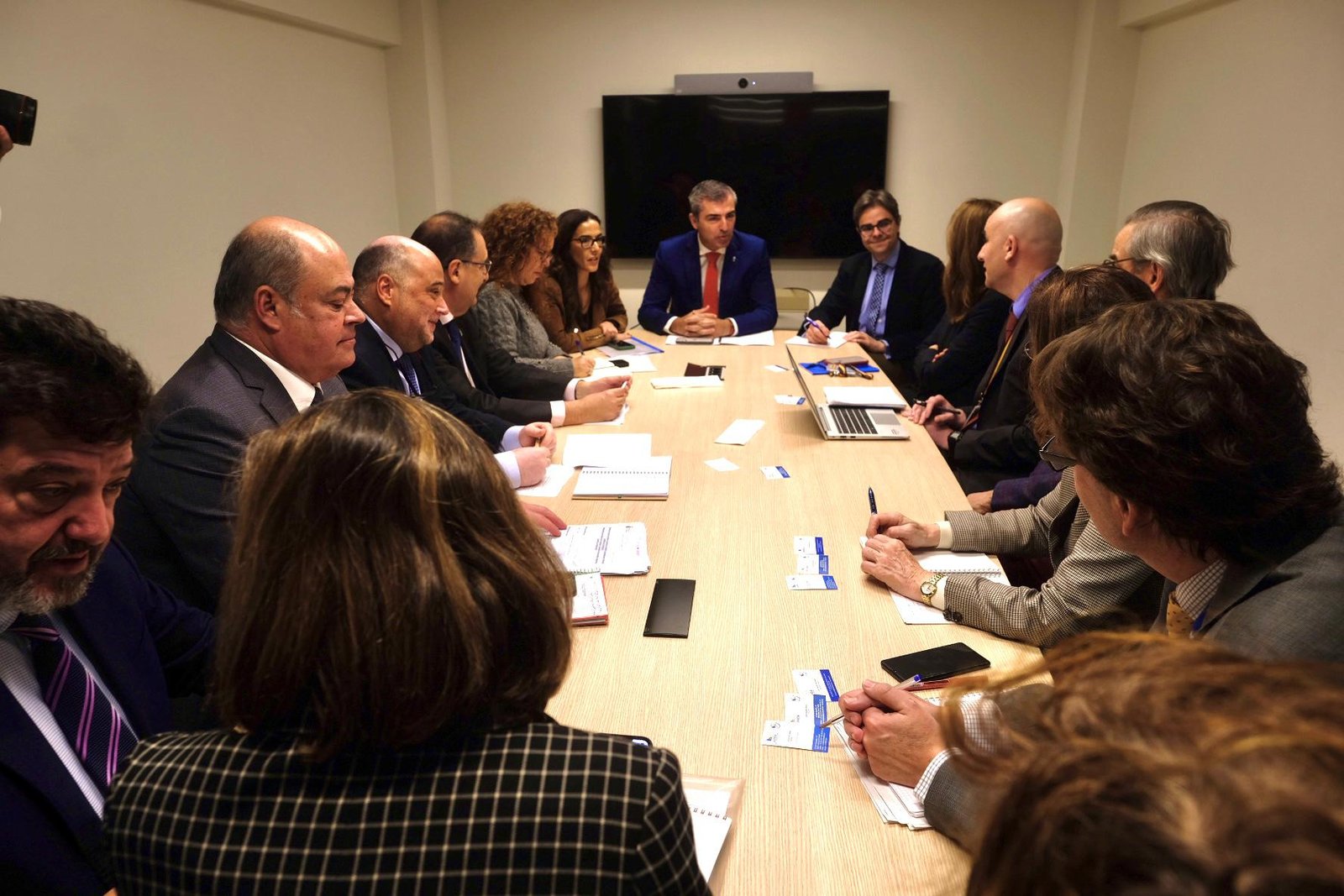
The vice president discusses with advisers from the environment and industry of the European Union to avoid damages that would mean the islands to maintain this directive from 2026
He also moves to the cabinet of Teresa Ribera, stating that the islands «need, for their specificities, not only to maintain the current state aids, but to increase them»
The Vice President of the Government of the Canary Islands and the Minister of Economy, Industry, Commerce, and Autonomous of the Government of the Canary Islands, Manuel Domínguez, held several meetings in Brussels to address issues related to the regulations and guidelines on environmental matters of the islands.
Therefore, on the one hand, Domínguez spoke with the environmental minors and the permanent representation of Spain before the EU (milestone). In this meeting, the Vice President negotiated a modification of the surcharge on maritime freight transport (ETS) from the Canary Islands. «Everyone knows the importance of maritime connections for our land, because 98 percent of imports are done this way, and therefore, it is essential for the European Union to understand our specific characteristics and conditions.»
«It seems that everything,» he continued, «I had a positive message today. We need to put on the table an impact study that reflects the need for modifications that can be proposed from Exercise 2026, because, as we warned them, the Canary Islands are at risk of not having supplies.»
Domínguez said that this situation «is something that concerns us a lot, because some shipping companies have already informed us that if the ETS has that additional cost, we must move to Africa to obtain certain products that we can import to our lands.»
The Vice President pointed out that this circumstance «makes us lose competitiveness, supply, and be extremely negative. Europe should not punish a member of the European Union itself and, in this regard, from the government of the Canary Islands, with the Minister of Transport and also from other fields, such as Vice-Presidency, Industry and Trade, we will take actions together with the ports of the Canary Islands, to show the European Union that the application of this measure would be detrimental to our country.»
For Domínguez, the solution is to «do something similar to what is already happening with air connections. If there are for planes, it is logical that maritime connections have it. We will have to make a gradual adaptation, but I cannot endanger the provision of supplies in our land,» he said.
Similarly, the Vice President said that this year 2025 is «the right time to see this need and that the changes that are already emerging can be incorporated, in 2026, without losing competitiveness or the provision of contributions. The Government of the Canary Islands will make economic efforts, both in the economy and in all our hands, to achieve it.»
«I am extremely optimistic,» said Domínguez, and according to the message I received today from the Reper members, the Canary Islands, certainly from 2026, can see the changes that can be made with these BT that avoid, from this, ETS form, the damages that can occur today in our country.
State aid
Similarly, Manuel Domínguez also took advantage of his stay in Brussels to hold a meeting with the Vice President of the European Commission and Curator of a clean, correct, and competitive transition, Teresa Ribera, Miguel Gil. In the same way, the Deputy Director-General of the Internal Market, Industry, Entrepreneurship, and SMEs of the European Commission, Hubert Gambs, as well as the Deputy Minister of Industry, Commerce, and Consumption of the Government of the Canary Islands, Felipe Afonso El Jaber; the Director-General of European Affairs, Celia Alberto; and a delegation from the Industrial Association of the Canary Islands (ASINCA), led by its president, Jorge Bogder.
Manuel Domínguez thanked the European Union’s willingness «to listen to the specific conditions of the Canary Islands’ economy and the importance of the moment we are in. The consultation period for the state aid reforms that may occur from 2026, and I tell you that we are concerned because the Canary Islands need aid, not only to maintain but also to grow.»
The Canary Vice President stated that, in this way, «it would allow aid for transport, goods, and passengers. State aid is of vital importance at this moment for an autonomous community like ours,» he reiterated.
«Here, in Europe,» Domínguez continued, «where we are talking about Ukraine or the possibility of strengthening investments in security, it seems that the need to maintain this state aid is not very clear, and this is very worrisome.»
At this moment, the Vice President said that «from this moment, and before these consultations that are proposed, although we still do not have a date, the Government of the Canary Islands will issue the relevant reports, so that our particularities and specifics are perfectly understood in Europe.»
Meanwhile, Jorge Escuder referred to the presence of Asinca in Brussels as «subject to the issues that we understand are fundamental for the Canary Island industry as an ultra-peripheral territory. We are in a key multi-annual budget period, which will be fundamental, so everything that is working now can offset our costs and, with it, allow our industries to develop and compete at the European level,» he concluded.

